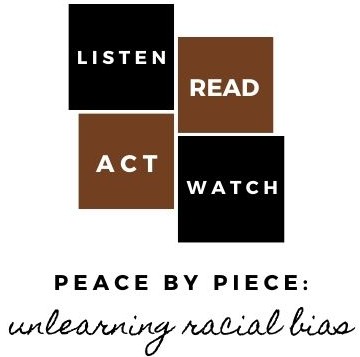This post is part of a year-long series. If my work is helpful for you, consider a contribution through Patreon or Venmo to support this crucial work of unlearning racial bias.
In Michelle Obama’s book, she explains her distaste for the question adults commonly ask kids, “What do you want to be when you grow up?” She posits that we don’t just become one thing as our finish line or destination. Rather, life – maybe especially adulthood – is about growth and learning. So, a more appropriate question we could ask ourselves is “who are we becoming?”
When I first listened to the audio of Obama’s book, I didn’t quite get her meaning here. From the time I was seven clear through to registering for college, I was set on being President. So I always had a ready, unflinching answer for folks who asked me what I wanted to be. Before Obama’s examination of this question, I figured pretty much everyone had an idea of what they wanted to be from early on, just as I did.
And even though I don’t mind the question of “what do you want to be when you grow up,” I do understand now how much more deeply resonant the question of who we are becoming is. When we question who we are becoming as if identity is an ongoing process rather than a fixed point on the horizon, we bring into focus our intention, our choices, and our progress. Such a perspective, if we allow it, can nudge us always to consider the context in which we find ourselves, and help us to narrow our attention to the next right thing.
It’s easy in our 21st century, constantly connected society, to become easily overwhelmed by the glitter that other people seem to have sprinkled over the snapshots of their lives that they share on social media, or by the seemingly constant man-made and natural tragedies occurring at any given time in the world around us. When we focus on who we are becoming right now, rather than on who we plan to be in the nebulous future, we can empower ourselves to take those small steps that move us forward in a positive direction. We can concentrate on finding the next breadcrumb on the trail leading us home, rather than becoming overwhelmed by the size of the forest.

Truly, this is the work of unlearning racial bias and building more peaceful communities: to focus on who we have been and what we can do today, right now, to become a more mindful, intentional version of that person. Perhaps we have been unwittingly or knowingly ignorant. Perhaps we have not been taught a broad scope of historical events and the contexts in which they occurred. Perhaps we have hurt our loved ones without realizing what we have done.
But the minute we learn of what we have gotten wrong, we can begin to course-correct and increase our chances of getting it right at the next available opportunity.
The work of unlearning racial bias can be daunting if we focus on the size and implications of systemic racism, our country’s blood-spattered history of intentionally wiping out and dehumanizing marginalized groups. If we hold up those transgressions to the mirror of the American dream in which we may well have always believed, then we will surely deflect personal responsibility, demure away from accountability, and defend ourselves against what we feel is misplaced blame. But when we step back from that initial gut punch, breathe, and ask earnestly the question of who we are becoming as individuals, and as a country, then the small choices we make each day come into focus, and we can accurately situate our personal actions amid a larger tapestry and imagine the change that can come if we stay the course.
I hope you will read, listen to, and/or watch Michelle Obama’s Becoming. And when you do, I hope you’ll ask yourself these questions:
- When you were little, what did you want to be when you grew up? How does that childhood desire align with the job or occupation you currently have?
- What feelings come up for you when you pause and consider who you used to want to be compared to who you are now? Have you allowed yourself the space to consider that the older version of yourself might know how to make life decisions better than your childhood self did?
- Would you feel a sense of loss if you let go of goals, perceptions, and dreams you had long ago in favor of focusing more intentionally in the life you have today? Why do you think that is?
- How important is it for you to keep growing in your capacity for knowledge and understanding as you grow older? Who do you want to be? Who are you becoming?
We are down to just one more piece in the #peacebypiece series. We will meet here again soon, as we have since last summer. And we will continue the hard, necessary work of unlearning racial bias so that we can build more peaceful communities, one piece at a time.
